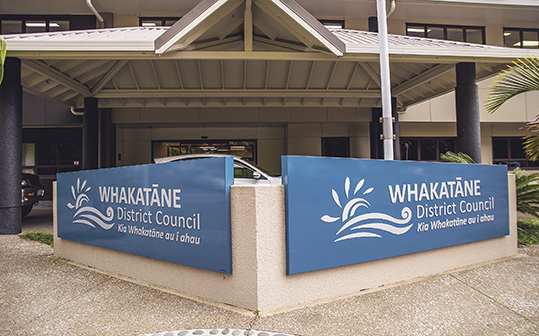Council to bring tourism services in-house

News Editor
Whakatāne District Council is bringing all tourism services in-house and no longer contributing funding to Tourism Bay of Plenty.
It will stop its $86,520 annual funding to regional tourism organisation Tourism Bay of Plenty from July 1 as part of wider cost-saving measures to ease pressure on ratepayers.
The funding arrangement began at $25,000 in 2013 and steadily increased over 12 years to support international tourism marketing and development, while the in-house council tourism and economic development team focused on domestic destination marketing and tourism operator support services.
This change reflects the need to carefully manage rising costs while continuing to deliver essential services that matter to the community.
Mayor Victor Luca said the council decided how to allocate budget according to its priorities.
“It is impossible to consult with every affected party each time a budget decision is made,” he said.
Leny Woolsey, general manager strategy and growth, said the council was facing similar financial pressures to those of many organisations across Aotearoa New Zealand.
“This change allows us to keep supporting our local tourism economy while providing a more streamlined experience for operators,” Dr Woolsey said.
The move aligns with the recently adopted Eastern Bay Economic Development Strategy, which positions Whakatāne as the commercial and tourism hub of the region with a long-term vision extending to 2055.
Tourism remains a key focus, with visitors contributing $164.7 million to the local economy in 2024, surpassing pre-Covid levels. Most visitors to the district come from the drive market – the wider Bay of Plenty, Waikato, Auckland and the central North Island.
Retail services and food and beverage are the largest recipients of the visitor dollar with more than $112 million spent in these sectors. Domestic travellers now account for 85 percent of all tourism spend.
In the past decade, domestic visitor spend grew from $97.9 million to $136.1 million, a growth of $38.2 million and 4.5 times the growth of international visitor spend, highlighting the value of the domestic visitor market.
In addition to tourism promotion, the focus will broaden to promoting Whakatāne and the Eastern Bay as a lifestyle destination, encouraging new permanent residents as part of the Economic Development strategy.
Tourism and economic development manager Nicola Burgess said the council’s internal team had been instrumental in growing the visitor market over the past decade and would continue to do so, with several new projects under way.
“We have a highly capable in-house team who will continue destination marketing focused on our natural strengths like Ōhope Beach and summer holidays, while also continuing to market year-round experiences such as golf, fishing, walking and cycling,” she said.
“This shift will not change the work we deliver. If anything, it offers better coordination. We’re looking at a more holistic approach to destination promotion, incorporating the great things about living and holidaying here. Regular holiday makers fall in love with a destination which often leads to a permanent move.”
The change comes as several councils nationwide have made similar decisions due to financial constraints, but Ms Burgess notes Whakatāne’s advantage in having an established internal tourism capability.
The team maintains established relationships with key tourism industry partners and neighbouring tourism regions. These connections ensure continued access to international marketing opportunities and trade events for local operators who wish to participate.
“Our tourism operators and businesses that benefit from the visitor dollar retain significant support, unlike other districts where operators have been left to manage independently,
“We continue to provide year-round marketing campaigns that include operator businesses, one-on-one marketing support, and assistance with their own promotional activities,” Ms Burgess said.
The council has acknowledges that the change impacts some operators and is committed to ongoing engagement with the sector during the transition.
“We’ll keep working with the sector to ensure our shared goals are met and tourism continues to thrive as a vital part of our local economy,” Dr Woolsey said.